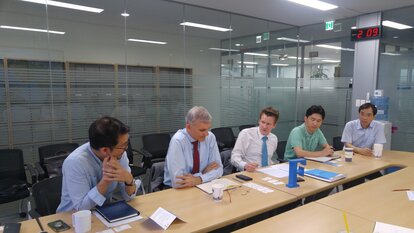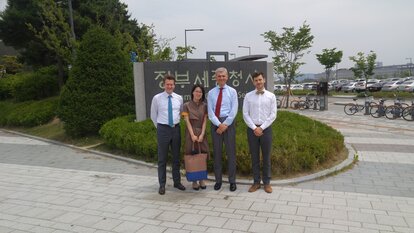Global Trade in the face of Protectionism: Round table discussion in Sejong

The Korea office of Friedrich Naumann Foundation for Freedom (FNF) co-hosted round table talks on the future of International Trade Relations with the Korean Institute for International Economic Policy (KIEP) in the administrative city of Sejong.
Participants from both institutions had the opportunity to discuss the subject with Dr. Razeen Sally, who is an Associate Professor at the Lee Kuan Yew School of Public Policy at the National University of Singapore and distinguished expert on the topics of international trade policy and Economies of South Asia. During his speech, Dr. Sally spoke about the current development of global trade, with special regard to protectionism and the rivalry between the US and China. He attributed the slowdown in global trade growth to the increase in so-called "creeping protectionism", describing behind the border trade obstacles like product standards and subsidies that are disadvantageous to foreign goods.
Based on the example of protectionism, Mr. Sally artfully illustrated the geopolitical dimension of international trade. Serious economic nationalism under Trump, already indicated through the halting of TTP, could foreshadow a US disengagement from Asia. This, in turn, would give China the opportunity to assume regional dominance in trade matters. However, economic liberalization goes hand in hand with an open society and the promotion of civil liberties, and to him, a repressive government like the Chinese can hardly promote those values abroad.
Dr. Sally's talk was followed by intense discussions with the experts from KIEP who in turn had several comments and annotations concerning his assessment of Chinese economic outlooks, Euroscepticism within the EU and the impact of industry 4.0 on labour economics and employment. This was the first joint event between the FNF and KIEP. Based on the success of the talks and intensity of discussions, the FNF Korea looks forward to continuing this productive cooperation with KIEP.
